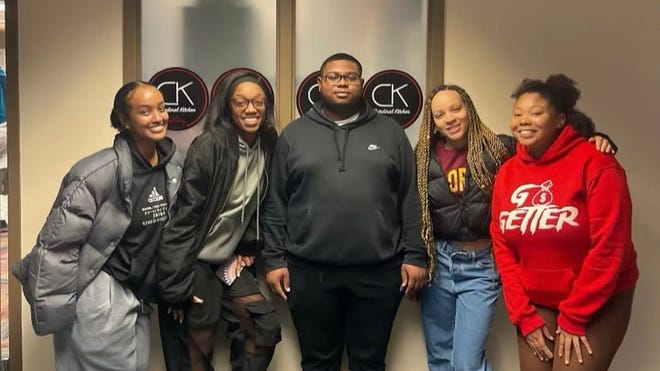Editor’s Note: The following is part of a class project originally initiated in the classroom of Ball State University professor Adam Kuban in fall 2021. Kuban continued the project this spring semester, challenging his students to find sustainability efforts in the Muncie area and pitch their ideas to Ron Wilkins, interim editor of The Star Press, Journal & Courier and Palladium-Item.
In the early 2000s, Michelle Miles went to the doctor for constant dizziness and fatigue. Her primary care doctor told her that she was overly stressed due to work and being a single mother of three, but her pain continued until she ultimately fainted on the job.
She was then diagnosed with sickle cell disease.
Growing up, her parents rarely took Miles and her siblings for check-ups. They instead made sure that their children had plenty of exercise, healthy foods and natural remedies for illness. It was known that “[Black] people cannot trust everyone to look out for them.”

“Of course we were poor,” Miles said. “We didn’t have health insurance, but really, I think my parents believed that those doctors wouldn’t care about us.”
The discrimination that Black people have gone through in American history is commonly known, but there are multiple factors into how this affected their trust of the health-care system that continues today.
According to an article published by The CommonWealth Fund, “The medical establishment has a long history of mistreating Black Americans — from gruesome experiments on enslaved people to the forced sterilizations of Black women and the infamous Tuskegee syphilis study that withheld treatment from hundreds of Black men for decades to let doctors track the course of the disease.”
The Tuskegee Study of Untreated Syphilis took place from 1932-1972, a prime time in the segregation era in the United States. This study is one of the most well-known cases of abuse of Black people in the health-care system, and it changed the perspective for many people.
“I remember that study terrifying my community,” Miles said. “We had to take our health into our own hands ‘cause we couldn’t trust anyone else, and now I try to teach my kids something similar.”
Miles raised her children similar to her parents. She took her kids to the doctor for vaccinations and a few check-ups throughout the year but mainly relied on herself to ensure that her children stayed healthy.
“I appreciate my mom for instilling those values in me because I know that I want to avoid the ‘Black people diseases’ at all costs,” Michelle Miles’ daughter, Aniah Miles, said.
Sickle cell anemia and high blood pressure are examples of some “Black people diseases.”
According to an article published by Pfizer, “High blood pressure is common in 12% vs. 10% of blacks vs. whites aged 18-34 years, respectively. It is common in 33% vs. 22% of those aged 35-49 years, respectively. Diabetes is common in 10% of blacks aged 35-49 compared to 6% of whites.”
It can be harder for the Black community to access quality and affordable health care.
According to the Center for Disease Control and Prevention in the same Pfizer article, “social factors compared to others in the U.S., specifically whites, affect African Americans at younger ages: unemployment, living in poverty, not owning a home, cost-prohibitive effects of trying to see a (medical doctor), smoking, inactive lifestyle, or obesity.”
Between having a mistrust of the health-care system and being more prone to specific diseases, the Black community has multiple struggles to be as healthy as they can be. Currently, there are students in college trying to make a difference within their community.
At Ball State University, the Black Students in Health Association (BSHA) creates a community to support students pursuing an education in health care but also educates others about the disparities. They hold meetings regarding pressing health issues for Black people and also create events for students to become more aware of the medical challenges the community faces.
“One of the reasons why our community is lacking so much health care wise is there’s not many people that look like us in those rooms,” Black Students in Health Association Secretary LaTavia Jackson said, “and it’s time to show the world that we can be in those professions too.”
If you or someone you know is seeking more health care information for minorities, visit the Office of Minority Health’s calendar via the Indiana Department of Health’s website.



